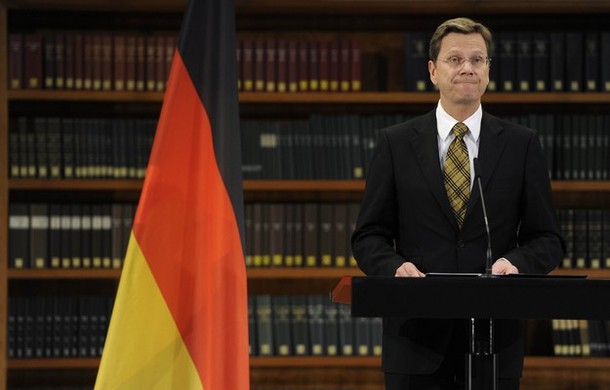
From Joschka Fischer, Social Europe: [N]ever has Germany been more isolated. The country has lost its credibility with the United Nations and in the Middle East; its claim to a permanent seat on the Security Council has just been trashed for good; and one really must fear the worst for Europe. …
All I can say is that I feel ashamed for this failure of the German government and – unfortunately – also for the leaders of the red and green opposition parties who at first applauded this scandalous mistake!
Foreign policy isn’t just about cutting a good figure on the international stage and otherwise focusing on the next domestic election. It means taking responsibility for hard strategic choices even when these are unpopular at home. …
Germany and other European countries went to Afghanistan in solidarity with a NATO partner – our most important security guarantor, the United States – after it had been attacked from there on September 11, 2001. And solidarity within NATO – a term all but shunned these days in official German circles – is mutual: left to its own devices, Germany could one day wake up in a very precarious situation. …
Like the Balkans, the far shores of the Mediterranean are part of the EU’s immediate security zone. It is naive to assume that the most populous EU member state could and should keep out of a crisis situation in a region with immediate manifold European and German security interests. What does the German government believe the consequences Qaddafi’s retention of power would be, both in humanitarian terms and in terms of Realpolitik? …
The collateral damage for EU foreign policy is also significant. Of all countries, Germany – which can almost be termed the inventor of the European Common Foreign and Security Policy – has now dealt that policy its most dangerous blow thus far. From now on, the principle of a “coalition of the willing” will also apply in the EU, further weakening Europe.
And if you view Germany’s behavior in respect to Libya in connection with its whining and dithering regarding the consequences for Europe of the financial crisis, you can’t but start worrying about the future of both Europe and NATO. Germany seems to be congealing into an introspective provincialism, and that at a time where its potential, its leadership even, are more urgently needed than ever. Unfortunately, you can forget about that.
Joschka Fischer was Germany’s foreign minister and vice-chancellor from 1998 to 2005 and a leader in the German Green Party for almost 20 years. (photo: Getty)
Image: getty%203%2025%2011%20Guido%20Westerwelle.jpg
